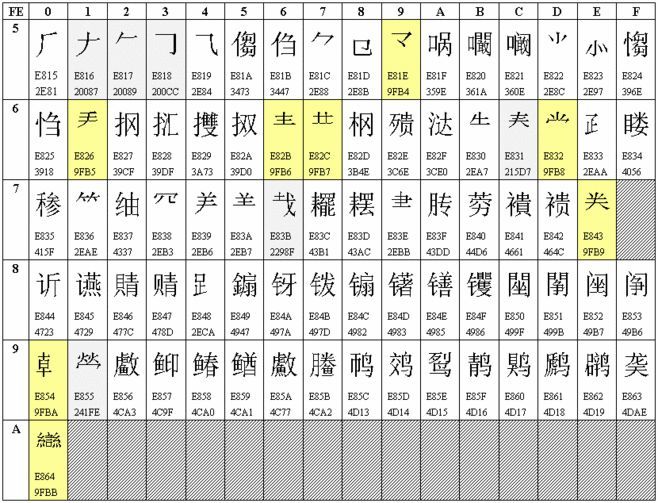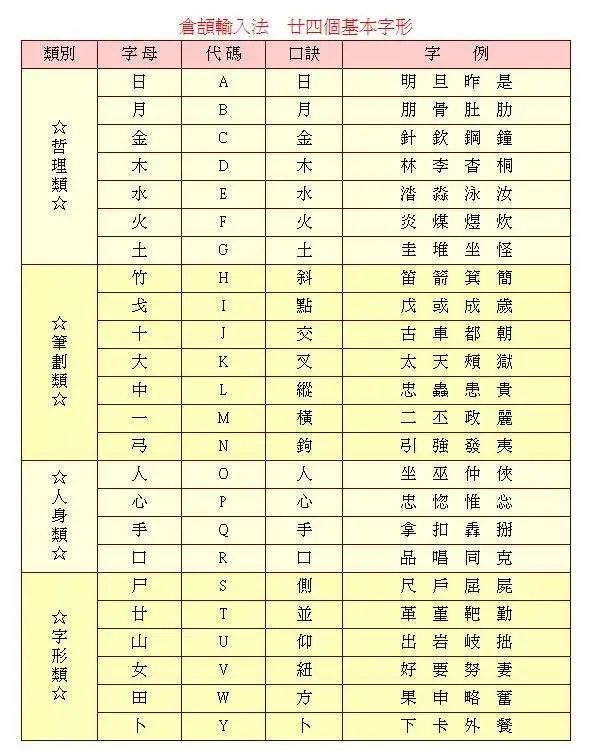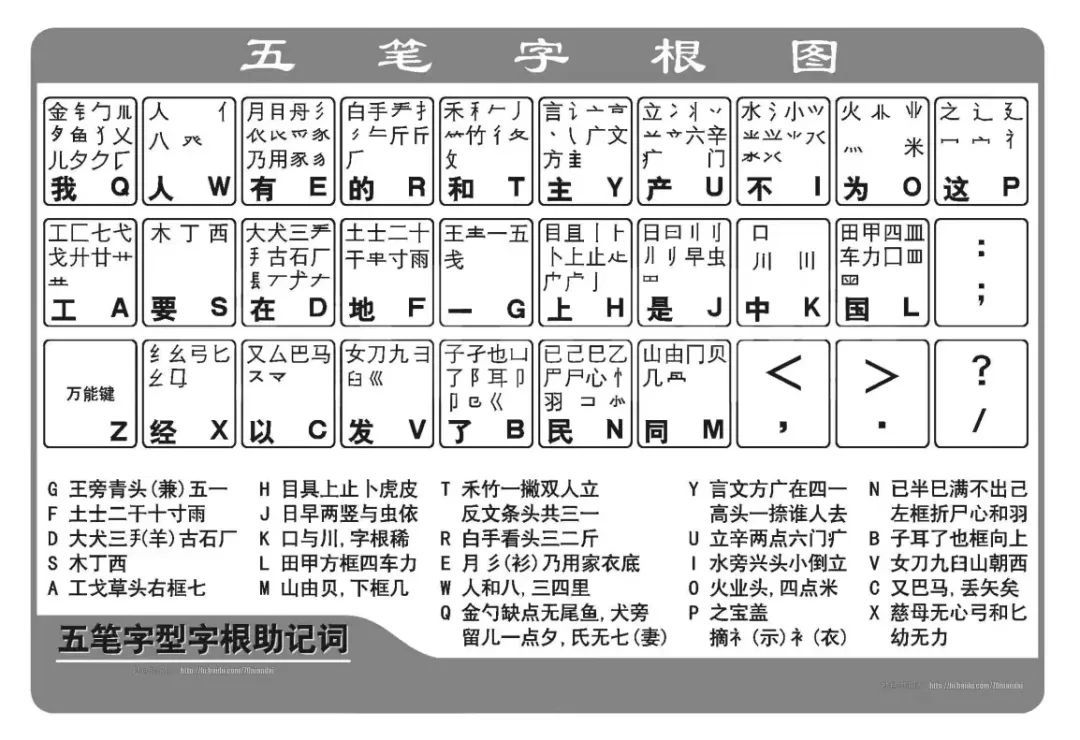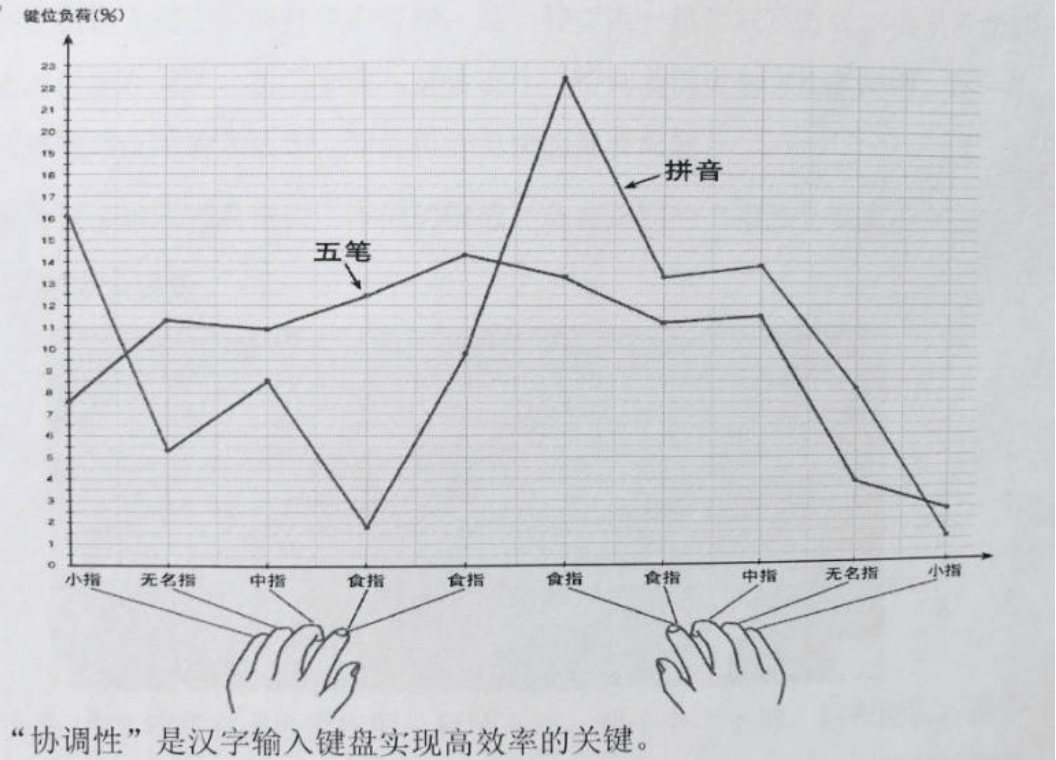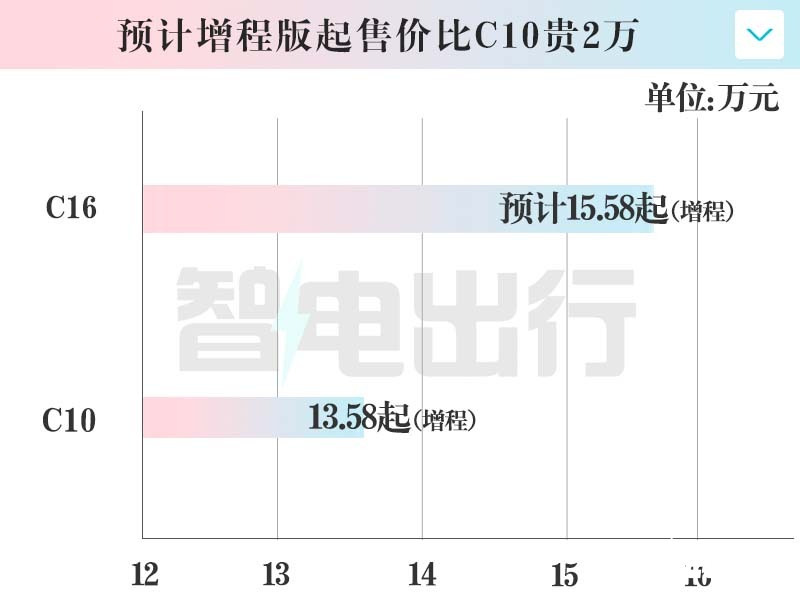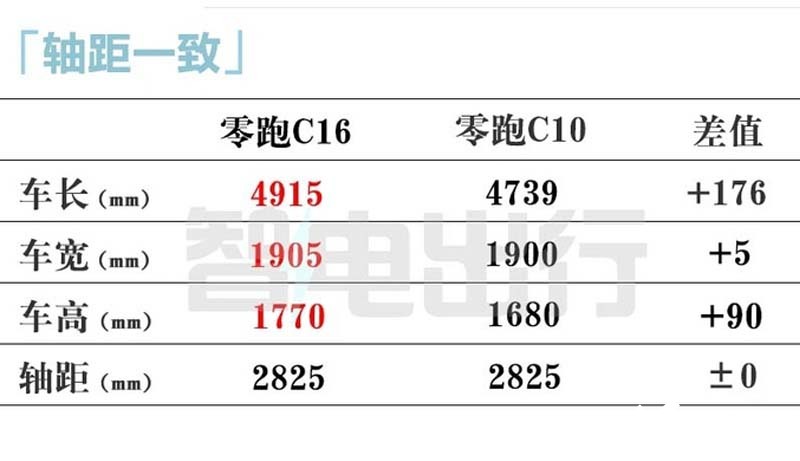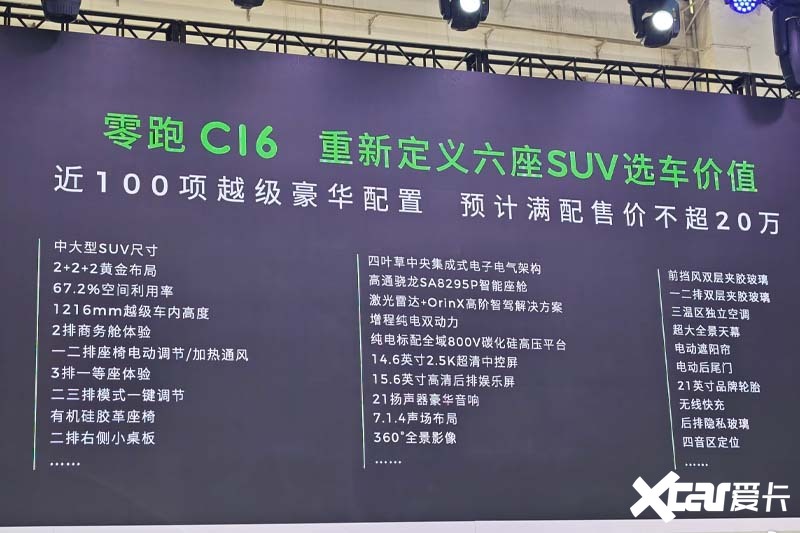Xinhua News Agency, Beijing, November 7-the State Council Press Office released a white paper entitled "Building a Community of Cyberspace Destiny Together" on November 7. The full text is as follows:
Work together to build a community of cyberspace destiny.
(November 2022)
People’s Republic of China (PRC)
the State Council Information Office
catalogue
foreword
First, building a community of destiny in cyberspace is an inevitable choice in the information age.
(1) The community of cyberspace destiny is an important part of the community of human destiny.
(2) Building a community of development, security, responsibility and interests.
(C) the basic principles of building a community of destiny in cyberspace
Second, the practice of Internet development and governance in China
(A) the digital economy is booming.
(B) digital technology to benefit the people and facilitate the people
(3) The cyberspace rule of law system has been continuously improved.
(D) rich and colorful online content.
(E) Cyberspace is getting clearer and clearer.
(VI) The operation of the Internet platform is constantly standardized.
(7) Effective guarantee of cyberspace security.
Third, China’s contribution to building a community of cyberspace destiny
(1) Continuously expand digital economic cooperation.
(2) Continue to deepen network security cooperation.
(3) Actively participate in cyberspace governance.
(4) Promoting global inclusive development
Fourth, China’s proposition of building a closer community of cyberspace destiny
(1) Adhere to respect for network sovereignty.
(2) Maintaining peace, security and stability in cyberspace.
(3) Create an open, fair, just and non-discriminatory digital development environment.
(4) Strengthening international cooperation in the protection of key information infrastructure.
(5) Maintaining the security and stability of the Internet basic resource management system.
(6) Cooperation in combating cyber crime and cyber terrorism.
(seven) to promote data security governance and development and utilization.
(8) Building a more just and reasonable cyberspace governance system.
(nine) to build a beautiful spiritual home online
(10) Adhere to the development achievements of the Internet to benefit all mankind.
Concluding remarks
foreword
Internet is an important achievement of the development of human society and a key symbol of the evolution of human civilization to the information age. With the acceleration of the new round of scientific and technological revolution and industrial transformation, the Internet has turned the world into a "global village", and the international community has increasingly become a community of destiny in which you have me and I have you. It is the common responsibility of the international community to develop, use and manage the Internet well and make it better for the benefit of mankind.
China has been committed to promoting the development and governance of the Internet since it fully accessed the Internet. Since the 18th National Congress of the Communist Party of China, the CPC Central Committee with the Supreme Leader as the core has adhered to the people-centered development thought, attached great importance to the Internet, vigorously developed the Internet, actively used the Internet, and effectively managed the Internet. China’s online information industry has made historic achievements, and hundreds of millions of people have gained more in sharing the fruits of Internet development, making positive contributions to building a peaceful, safe, open, cooperative and orderly cyberspace.
With the rapid development of the Internet, the problems faced by cyberspace governance are increasingly prominent. General Secretary of the Supreme Leader put forward the important concept of building a community of cyberspace destiny, and deeply explained a series of major principles and propositions of global Internet development and governance. The important concept of building a community of destiny in cyberspace conforms to the development trend of the information age and the general trend of human society, responds to the challenges of cyberspace risks, shows the Communist Party of China (CPC)’s feelings of striving for progress for mankind and seeking common ground for the world, and expresses China’s sincere desire to strengthen cooperation with other countries in Internet development and governance. In the new era, China’s international cooperation in cyberspace, under the vision of building a community of cyberspace destiny, has made new achievements, achieved new breakthroughs and displayed a new atmosphere.
This white paper is issued to introduce the concept and practice of Internet development and governance in China in the new era, share the positive achievements of China in promoting the construction of a community of cyberspace destiny, and look forward to the prospect of international cooperation in cyberspace.
First, building a community of destiny in cyberspace is an inevitable choice in the information age.
Interconnection is the basic attribute of cyberspace, and sharing and co-governance is the common vision of Internet development. With the rapid development of global information technology, the Internet has penetrated into all aspects of human production and life. At the same time, human beings are increasingly facing problems and challenges in development and security in cyberspace, and they need to join hands to jointly deal with them.
(1) The community of cyberspace destiny is an important part of the community of human destiny.
At present, the great changes that the world has never seen in a century have accelerated its evolution, and a new round of scientific and technological revolution and industrial transformation have developed in depth. At the same time, the epidemic situation in the century has a far-reaching impact, anti-globalization thoughts are on the rise, unilateralism and protectionism are obviously rising, the recovery of the world economy is weak, local conflicts and turmoil are frequent, global problems are intensified, and the world has entered a new period of turmoil and change. Problems such as unbalanced development, imperfect rules and unreasonable order in the Internet field are increasingly prominent, and cyber hegemonism poses a new threat to world peace and development. Individual countries use the Internet as a tool to maintain hegemony, abuse information technology to interfere in other countries’ internal affairs, engage in large-scale network stealing and monitoring activities, and the risk of confrontation in cyberspace rises. Some countries engage in "small circles" and "decoupling and breaking chains", creating division and confrontation in cyberspace, and the situation facing cyberspace security is becoming increasingly complicated. Cyberspace governance calls for more fair, reasonable and effective solutions, and global threats and challenges need a strong global response.
As the world’s largest developing country and the country with the largest number of netizens, China conforms to the development trend of the information age, adheres to the people-centered development thought, upholds the global governance concept of co-construction and sharing, and promotes the construction of a community of cyberspace destiny. The community of cyberspace destiny adheres to multilateral participation, multi-party participation, respect for network sovereignty, carry forward the spirit of partnership, insist on discussing everyone’s affairs, and promote the international community to deepen pragmatic cooperation and jointly meet risk challenges. The concept of building a community of cyberspace destiny conforms to the development law of the information age, meets the needs and expectations of people all over the world, and contributes to China’s plan for promoting the development of cyberspace and the reform of governance system on the basis of respecting cyberspace sovereignty.
The community of destiny in cyberspace is an important part of the community of human destiny and a concrete embodiment of the concept of the community of human destiny in cyberspace. The concept of development, security, governance, universal benefit and other aspects contained in the community of cyberspace destiny is in the same strain as the concept of the community of human destiny, and fully embodies the objective laws and distinctive characteristics of cyberspace. At the same time, promoting the construction of a community of cyberspace destiny will provide abundant digital power for building a community of human destiny, build a solid security barrier, and unite a broader cooperation consensus.
(2) Building a community of development, security, responsibility and interests.
Build a community of destiny in cyberspace, adhere to the global governance concept of discussing, building and sharing, promote the construction of a multilateral, democratic and transparent international Internet governance system, strive to achieve the goals of innovative development, safety and order, equal respect and open sharing in cyberspace, achieve common development, common security maintenance, joint participation in governance and shared achievements, and build cyberspace into a development community, a security community, a responsibility community and an interest community that benefits all mankind.
Build a development community. With the accelerated integration and innovation of the new generation of information and communication technologies, digitalization, networking and intelligence have accelerated their penetration in various fields of economy and society, profoundly changing people’s production methods and lifestyles. At the same time, different countries and regions have uneven development levels in Internet popularization, infrastructure construction, technological innovation and creation, digital economy development, digital literacy and skills, which affects and restricts the information construction and digital transformation of all countries in the world, especially developing countries. Building a development community means adopting more active, inclusive, coordinated and inclusive policies, accelerating the popularization of global information infrastructure and providing useful, affordable and well-used network services for developing countries. Give full play to the engine role of digital economy in global economic development, and actively promote the development of digital industrialization and industrial digital transformation.
Build a safe community. Security is the premise of development, and a safe, stable and prosperous cyberspace is of great significance to all countries in the world. Network security is a global challenge. No country can stay out of it and be immune to it. Maintaining network security is the common responsibility of the international community. Building a security community means advocating the concept of open and cooperative network security, and insisting on paying equal attention to security and development, encouraging and standardizing simultaneously. Strengthen international cooperation in key information infrastructure protection and data security, maintain information technology neutrality and industrial globalization, and jointly curb information technology abuse. Further enhance strategic mutual trust, share cyber threat information in a timely manner, effectively coordinate and handle major cyber security incidents, cooperate in combating cyber terrorism and cyber crime, and jointly safeguard peace and security in cyberspace.
Building a community of responsibility. Cyberspace is a common space for human activities, and the future and destiny of cyberspace should be shared by all countries in the world. Building a community of responsibility means adhering to multilateral participation and multi-party participation, and actively promoting the reform and construction of the global Internet governance system. Give full play to the role of the United Nations as the main channel in the international governance of cyberspace, and give full play to the main roles of the government, international organizations, Internet enterprises, technical communities, social organizations, individual citizens and so on, and establish mutual trust, coordinated and orderly cooperation. Improve the dialogue and consultation mechanism, jointly study and formulate cyberspace governance norms, reflect the interests and concerns of all parties, especially the interests of developing countries, and make the governance system more fair and reasonable.
Build a community of interests. The results of Internet development and governance should be shared by all countries in the world to ensure that different countries, different nationalities and different groups of people enjoy the Internet development dividend equally. Building a community of interests means adhering to people-oriented, promoting science and technology to be good and enhancing the inclusiveness of the digital economy. Increase policy support to help small and medium-sized enterprises use the new generation of information technology to promote the innovation of products, services, processes, organizations and business models, so that small and medium-sized enterprises can share more opportunities from the development of digital economy. Pay attention to the network protection of vulnerable groups, strengthen the construction of network ethics and network civilization, promote the healthy development of network culture and cultivate a good network ecology. Promote inclusive development on a global scale, enhance the network development capacity of developing countries, bridge the digital divide, share the fruits of Internet development, and help effectively implement the UN Agenda for Sustainable Development in 2030.
(C) the basic principles of building a community of destiny in cyberspace
To build a community of destiny in cyberspace, adhere to the following basic principles:
Respect network sovereignty. The principle of sovereign equality established by the Charter of the United Nations is the basic norm of contemporary international relations, and it also applies to cyberspace. Cybersovereignty is a natural extension of national sovereignty in cyberspace, and countries’ right to independently choose the development path and governance mode of cyberspace and participate in international governance of cyberspace on an equal footing should be respected. Countries have the right to formulate public policies, laws and regulations on cyberspace according to their national conditions and drawing on international experience. No country engages in cyber hegemony, does not interfere in other countries’ internal affairs by using the Internet, does not engage in, condone or support cyber activities that endanger other countries’ national security, and does not infringe on other countries’ key information infrastructure.
Maintain peace and security. Realizing the security and stability of cyberspace is related to the common well-being of mankind. Countries should persist in resolving disputes through dialogue, resolve differences through consultation, make overall plans to deal with traditional and non-traditional security threats, and ensure peace and security in cyberspace. Countries should oppose hostile acts and acts of aggression in cyberspace, prevent an arms race in cyberspace, guard against military conflicts in cyberspace, and guard against and oppose criminal activities such as terror, obscenity, drug trafficking, money laundering and gambling. All parties should abandon the cold war mentality, zero-sum game and double standards, seek peace through cooperation, and strive to achieve their own security in common security.
Promote open cooperation. Openness is a prerequisite for international cooperation in cyberspace and an important condition for building a community of cyberspace destiny. All countries should uphold the concept of openness, pursue an open policy, enrich the connotation of openness, improve the level of openness, and jointly promote the healthy development of the Internet. Actively build bilateral, regional and international cooperation platforms, strengthen the complementary advantages of resources, maintain a global coordinated innovation system, and promote the inclusive development of different systems, different nationalities and different cultures in cyberspace. Oppose the politicization of network security issues. Oppose trade protectionism. Oppose narrow, closed cliques, split the Internet, and use their own advantages to harm the security of information and communication technology products and services supply chains in other countries.
Build a good order. Cyberspace, like the real society, advocates freedom and keeps order. Freedom is the purpose of order, and order is the guarantee of freedom. It not only respects the rights of netizens to exchange ideas and express their wishes, but also builds a good network order according to law. Cyberspace is not an "extra-legal place". Cyberspace is virtual, but the subject of using cyberspace is realistic, and everyone should abide by the law and clarify the rights and obligations of all parties. Adhere to the pipe network, network operation and internet access according to law, so that the internet can operate healthily on the track of rule of law. Strengthen the construction of network ethics and network civilization, give play to the guiding role of moral education, moisten cyberspace and conserve network ecology with outstanding achievements of human civilization.
Second, the practice of Internet development and governance in China
The Internet in China is an open and cooperative Internet, an orderly Internet, an Internet full of positive energy, and an Internet that benefits the people. Based on the new development stage, implementing new development concepts, building a new development pattern, and building a network power and digital China, China has continuously achieved new results in stimulating the vitality of the digital economy, promoting the construction of digital ecology, creating a clear cyberspace, and preventing network security risks, providing powerful services, support and guarantees for high-quality development and providing a solid foundation for building a community of cyberspace destiny.
(A) the digital economy is booming.
China vigorously promotes the construction of information infrastructure and the popularization and application of the Internet. Driven by information technology innovation, it constantly promotes new industries, new formats and new models, accelerates the development of the digital economy, promotes the deep integration of the digital economy and the real economy, and promotes new development with new kinetic energy. According to estimates by research institutions, by 2021, the scale of digital economy in China will reach 45.5 trillion yuan, accounting for 39.8% of GDP, and the digital economy has become one of the main engines to promote economic growth. The scale of digital economy has ranked second in the world for many years.
The scale of information infrastructure construction is expanding day by day. By June 2022, the number of netizens in China reached 1.051 billion, and the Internet penetration rate increased to 74.4%. By June 2022, China had built and opened 1.854 million 5G base stations, with 455 million 5G mobile phone users, and built the largest 5G network in the world, becoming one of the global leaders in 5G standards and technologies. Independent networking took the lead in realizing large-scale commercialization, actively carried out international cooperation in 5G technology innovation and development and construction, and made important contributions to the popularization of 5G applications around the world. Backbone networks, metropolitan area networks and LTE networks have completed the upgrading of Internet Protocol Version 6 (IPv6), and the support of major Internet websites and applications for IPv6 has been significantly improved. By July 2022, the number of active users of IPv6 in China reached 697 million.
Beidou-3 global satellite navigation system was completed and opened. In July 2020, Beidou-3 global satellite navigation system was officially opened, providing services to the whole world. In 2021, the overall industrial scale of satellite navigation and location services in China will reach 469 billion yuan. By the end of 2021, the total social possession of terminal products with Beidou positioning function exceeded 1 billion units/set, more than 7.9 million road operating vehicles and 100,000 automatic driving systems of agricultural machinery were installed and used with Beidou system, and the output value of downstream operation services such as medical health, remote monitoring and online service was nearly 200 billion yuan, and Beidou industrial system was basically formed, with remarkable economic and social benefits.
The innovative application of digital technology continued to deepen. China vigorously cultivates new technologies and applications such as artificial intelligence, Internet of Things, and next-generation communication network, and promotes the acceleration of economic and social fields from digitalization and networking to intelligence, and enters the ranks of innovative countries. The big data industry has developed rapidly, and the compound annual growth rate of industrial scale during the 13 th Five-Year Plan period exceeded 30%. In 2021, the business income of Internet and related service enterprises above designated size in China reached 1,550 billion yuan, a year-on-year increase of 21.2%. Smart industry, smart transportation, smart health, smart energy and other fields have become the areas where the number of industrial Internet of Things connections is growing rapidly.
The development of industrial internet has entered the fast lane. The digital transformation of manufacturing industry continued to deepen. As of February 2022, the numerical control rate of key processes of industrial enterprises above designated size reached 55.3%, and the penetration rate of digital R&D tools reached 74.7%. Formulate the Industrial Internet Development Action Plan (2018-2020), implement the industrial Internet innovation and development project, drive the total investment to nearly 70 billion yuan, and select four national industrial Internet industry demonstration bases and 258 pilot demonstration projects. The Industrial Internet Innovation and Development Action Plan (2021-2023) is being promoted. Through the compatible industrial internet infrastructure, the interconnection between enterprises, people, equipment and articles will be vigorously promoted.
The digital transformation of agriculture has been steadily advanced. Digital technologies such as 5G, Internet of Things, big data and artificial intelligence are integrated and applied in agricultural production and management, and research on key technologies and innovative applications of smart agriculture and smart agricultural machinery is constantly strengthened. Committed to building a pilot demonstration of agricultural Internet of Things, implementing smart water conservancy projects, actively promoting the digital management and intelligent transformation of water conservancy public infrastructure, promoting the application of big data in agriculture and rural areas, and establishing an information service system for the entire agricultural industry chain. The second largest species resource database and information system in the world has been built, and a "golden seed breeding platform" has been developed to promote the digital management service of agricultural equipment.
The level and ability of digitalization have been continuously improved. E-commerce continues to prosper. In 2021, the online retail sales of physical goods in China reached 10.8 trillion yuan, up 12% year-on-year, accounting for 24.5% of the total retail sales of social consumer goods. In 2021, the import and export scale of cross-border e-commerce in China reached 1.92 trillion yuan, up 18.6% year-on-year. The scale of third-party payment transactions continued to expand. The business model of the service industry is constantly innovating, and Internet medical care, online education and telecommuting have pressed the fast forward button for the digitalization of the service industry. The cross-border payment capability of digital services has been continuously enhanced. In 2021, China’s digitally deliverable service trade reached 2.33 trillion yuan, up 14.4% year-on-year.
(B) digital technology to benefit the people and facilitate the people
The development of Internet in China has not only breadth and depth, but also temperature. China adheres to the people-oriented principle, actively promotes the use of the Internet in public services such as education, medical care and poverty alleviation, improves the service level of digital technology, promotes digital inclusion, enhances the digital literacy and skills of different groups, and accelerates the implementation of the UN Agenda for Sustainable Development in 2030.
The Internet has achieved positive results in helping precision poverty alleviation. Implement the Network Poverty Alleviation Action Plan, give full play to the important role of the Internet in boosting poverty alleviation, and implement five major projects, including network coverage, rural e-commerce, network intelligence support, information service and network public welfare, to help win the battle against poverty. China has historically and thoroughly solved the problem that poor areas are not connected to the Internet. By the end of 2020, the proportion of poor villages connected to optical fiber has reached more than 98%, and accurate fee reduction for poor areas has benefited more than 12 million poor people. The retail sales of rural network in China reached 2.05 trillion yuan in 2021, up 11.3% year-on-year. More than 2,400 county-level e-commerce public service and logistics distribution centers and more than 148,000 village-level e-commerce service sites were built nationwide. The network information service system for poverty alleviation has been basically established. By the end of 2020, 454,000 information agencies for benefiting farmers have been built and operated nationwide, and the telemedicine has achieved full coverage of county-level hospitals in state-level poverty-stricken counties, and the proportion of administrative villages covered by basic financial services has reached 99.2%. By the end of 2020, the online sales platform of agricultural and sideline products in poverty-stricken areas had achieved full coverage in 832 state-level poverty-stricken counties, with more than 90,000 agricultural and sideline products on the shelves, and the transaction volume of the platform exceeded 9.97 billion yuan. China Social Poverty Alleviation Network registered 65.34 million users, published 7.37 million pieces of demand information and successfully docked 5.84 million pieces.
The level of educational informatization has been continuously improved. Focus on information network, platform system, digital resources, smart campus, innovative applications, credible security and other aspects, accelerate the construction of new education infrastructure, and build a high-quality education support system. By the end of 2021, the internet access rate of primary and secondary schools will reach 100%, the proportion of schools with export bandwidth of more than 100M will reach 99.95%, the number of schools with wireless network access will exceed 210,000, and 99.5% of primary and secondary schools will have multimedia classrooms. Implement the national education digitalization strategic action. In March, 2022, the national public service platform for smart education was officially launched, integrating the resource service platforms such as the national smart education platform for primary and secondary schools, the national smart education platform for vocational education, the national smart education platform for higher education and the national 24365 employment service platform for college students. The platform has connected 529,000 schools, facing 18.44 million teachers, 291 million students and the vast number of social learners, and has collected 34,000 basic education curriculum resources, 6,628 online excellent vocational education courses and 27,000 high-quality higher education courses.
The information service guarantee for different groups is becoming more and more perfect. Strengthen information barrier-free construction and help the elderly and the disabled to share digital life. A number of measures have been taken to create conditions for information exchange among the disabled. Focusing on seven kinds of high-frequency events and service scenarios involving travel, medical treatment, consumption, entertainment and work in the daily life of the elderly, we will formulate specific measures to effectively solve the difficulties of the elderly in using intelligent technology. Use the Internet to effectively protect women’s rights and interests in health, education and environment. For minors, we have strengthened network protection and achieved remarkable results.

(3) The cyberspace rule of law system has been continuously improved.
China always regards the rule of law as the basic means to strengthen the construction of digital ecology and build a standardized and orderly network environment, and unswervingly promotes the legal network management, legal network operation and legal internet access, so as to promote the healthy operation of the Internet on the track of the rule of law.
Improve the network legal system. Formulating and promulgating basic, comprehensive and overall laws such as Electronic Commerce Law of the People’s Republic of China, Electronic Signature Law of People’s Republic of China (PRC), Cyber Security Law of the People’s Republic of China (hereinafter referred to as Cyber Security Law), Data Security Law of People’s Republic of China (PRC) (hereinafter referred to as Data Security Law) and Personal Information Protection Law of People’s Republic of China (PRC) (hereinafter referred to as Personal Information Protection Law), The "four beams and eight pillars" of network legislation in China has basically formed a network legal system based on the Constitution, relying on laws, administrative regulations, departmental rules and local regulations, based on traditional legislation, and focusing on network-specific legislation such as network content construction and management, information development and network security.
Strict network law enforcement. Establish and improve the coordination mechanism of network law enforcement, and severely crack down on illegal and criminal acts such as telecommunication network fraud, online gambling, online pyramid schemes, online rumors and online violence. We will further promote law enforcement in the fields of personal information protection, network information content management, network security and data security protection. Constantly improve the pertinence, timeliness and deterrent power of network law enforcement, effectively curb network violations, and cyberspace is increasingly standardized and orderly.
Innovate network justice. Adhere to the overall promotion of judicial reform and informatization construction, actively use information technology, promote judicial network and sunshine reform, launch smart courts, smart procuratorial services, improve online litigation rules, and promote the new trial mechanism of "online trial of online cases" in Internet courts.
Carry out network popularization of law. Always regard law popularization and law-abiding as the basic work to strengthen the rule of law, and constantly strengthen publicity and education on Internet law popularization. Combine the National Constitution Day, National Security Education Day, National Cyber Security Publicity Week, Intellectual Property Publicity Week and other important nodes, and vigorously promote the popularization of laws and regulations such as the Constitution of People’s Republic of China (PRC), the Cyber Security Law, the Data Security Law and the Personal Information Protection Law. Through the case statement, case interpretation and other forms, effectively improve the awareness and network literacy of the whole people, especially young people, and promote the formation of a good atmosphere for the whole network and the whole society to respect the law and abide by the law.
(D) rich and colorful online content.
The online positive energy is strong, the main melody is high, the latest achievements of the modernization of Marxism in China are deeply rooted in people’s hearts, and the socialist core values lead the construction of online culture. The Internet has increasingly become a new carrier of cultural prosperity, a new home for the spiritual life of hundreds of millions of people, and a new space for building consensus and a new field for gathering positive energy. The world also knows more about the real, three-dimensional and comprehensive China through the window of the Internet.
The network is full of positive energy. The mainstream public opinion on the Internet has been continuously consolidated and expanded, and positive and healthy high-quality online content has been continuously increased. The main theme of the times, that is, communist party is good, socialism is good, reform and opening up is good, the great motherland is good, and people of all ethnic groups are good, is loud and clear on the Internet, advanced culture and the spirit of the times are filling the cyberspace, and China’s Internet is full of positive energy for the good. The Internet in China is open, free, harmonious and orderly. More than one billion netizens in China learn about world events, express and exchange views, and participate in state and social governance through the Internet, thus rallying a strong consensus and strength of United struggle and common future.
Network culture is diverse. The continuous development of online audio-visual, online literature, online music and online interactive entertainment has produced a huge amount of online cultural content, providing people with rich spiritual food. Digital libraries, "cloud museums", online theaters, "cloud exhibitions", online concerts, VR tours, etc. allow people to enjoy high-quality cultural feasts without leaving home. Pluralistic network culture has spawned many new cultural formats.
Iterative updating of network propagation form. Big data, cloud computing, artificial intelligence, VR, AR and other information technologies have advanced by leaps and bounds, which has promoted the continuous innovation of network communication methods and carrier channels, made the main communication channels more mobile, made the expression more popular, and made the communication forms more diversified. The advanced and novel media-melting products have emerged continuously, and the good voice has become the "strongest voice" in China cyberspace, spreading faster, wider and farther, and more deeply rooted in people’s hearts.
(E) Cyberspace is getting clearer and clearer.
Cyberspace is the common spiritual home of hundreds of millions of netizens. Cyberspace is clear and the ecology is good, which is in line with the interests of the people. Cyberspace is smoky and ecological deterioration, which is not in the interests of the people. China gathers upward energy for good, creates a civilized, healthy and clean network ecology, and continuously promotes the increasingly clear cyberspace.
Promote the "clear" series of special actions. Focus on the network ecological chaos that the masses have strongly reflected, and further promote the "Qinglang" series of special actions. In-depth promotion of "rice circle" chaos management, strengthen standardized management, severely crack down on illegal acts, and strive to curb online "rice circle" chaos. Focus on live webcasts, short videos and other fields, and focus on controlling illegal and illegal content such as "sex, ugliness, strangeness, falsehood, vulgarity and gambling", and effectively standardize the ills such as abnormal operation of platform functions. We will continue to carry out chaos management such as network water army and network account operation, and strictly guard against repeated rebound, effectively curbing the breeding and spread of network chaos and continuously shaping and purifying the network ecology.
Strengthen the construction of network civilization. Standardize the process of online content production, information release and dissemination, standardize the management of Internet public welfare undertakings, hold the China Network Civilization Conference, and carry out activities to create network civilization, so as to nourish people’s hearts and guide society with a positive, healthy and upward-oriented network culture. Give full play to the main role of the government, platforms, social organizations, netizens, etc., jointly promote the civilized network, civilized network, civilized Internet access, share the achievements of network civilization, and build concentric circles online and offline.
(VI) The operation of the Internet platform is constantly standardized.
In recent years, China’s platform economy has developed vigorously, and various new formats and models have emerged one after another, which has played an important role in promoting high-quality economic and social development and meeting people’s growing needs for a better life. At the same time, platform monopoly and algorithm abuse have adversely affected fair competition in the market and consumer rights. China actively builds a legal system that is compatible with the platform economy, improves the supervision mechanism to promote enterprise development and standardize operation, creates a good digital ecological environment, and promotes the fair competition and orderly development of the platform economy.
Conduct anti-monopoly review and supervision. Formulate policies and regulations such as "Anti-monopoly Guide of the State Council Anti-monopoly Committee on Platform Economy" and "Measures for Supervision and Management of Online Transactions" to provide clear rules and guidelines for the healthy operation of the platform economy. Anti-monopoly investigation and administrative punishment were carried out to effectively protect the rights and interests of small and medium-sized enterprises, workers, consumers and other market entities in view of the problems such as "two-in-one", "big data killing" and "blocking URL links" on the Internet platform that affect fair competition in the market and infringe on the legitimate rights and interests of consumers and workers.
Strengthen the governance of new technologies and new applications. Constantly improve the institutional rules that adapt to new technologies and applications such as artificial intelligence, big data and cloud computing, strengthen the management of blockchain and algorithm recommendation services, regulate the abuse of algorithms and illegal handling of personal information according to law, and promote all kinds of new technologies and applications to better serve the society and benefit the people.
Promote self-discipline in the Internet industry. China network social organizations and industry organizations give full play to their roles, formulate and issue industry self-discipline conventions, strengthen social responsibility construction, guide and urge Internet enterprises to standardize platform business activities, take the initiative to assume social responsibilities, consciously accept social supervision, and jointly create a healthy market order with honest management, benign interaction and fair competition.
(7) Effective guarantee of cyberspace security.
Strengthen the top-level design of network security, the legal framework such as Network Security Law, Data Security Law and Personal Information Protection Law has basically taken shape, the network security guarantee capability has been continuously improved, and the network security defense line of the whole society has been further strengthened.
Strengthen the security protection of key information infrastructure. Formulate and promulgate the Regulations on Security Protection of Critical Information Infrastructure, adhere to comprehensive coordination, division of responsibilities and legal protection, give full play to the role of the government and all sectors of society, strengthen risk assessment and security detection, strengthen monitoring and early warning capabilities, actively promote the establishment of a network security information sharing mechanism, find security risks in time, carry out research and analysis and emergency response as soon as possible, and take various measures to jointly protect the security of critical information infrastructure.
Promote the development of cyberspace norms. Adhere to the unity of promoting development and managing according to law, and actively encourage the platform to play a greater role in leading technological innovation, stimulating economic vitality, and promoting information to benefit the people. At the same time, prevent some platforms from using the advantages of data, technology, market and capital to compete in disorder, and comprehensively create a fair competition, inclusive development, open and innovative market environment.
Promote the integrated development of network security education, technology and industry. Add a first-class discipline of cyberspace security, implement a first-class network security college construction demonstration project, and set up a special network security fund. More than 60 universities in China have set up network security colleges, and more than 200 universities have set up undergraduate programs in network security. The network security industry ecology is constantly improving, the technology industry system is basically formed, and the network security product segmentation field and technology direction continue to expand. We will build a national cyber security talent and innovation base, build a national cyber security industrial park and a national cyber security education technology industry integration development pilot zone, and promote the formation of a benign ecology that promotes each other.

Strengthen the protection of personal information. Constantly improve the legal system for the protection of personal information, and promulgate the Law on the Protection of Personal Information, focusing on solving outstanding problems such as excessive collection, illegal acquisition and illegal trading of personal information, providing an all-round and systematic legal basis for the protection of personal information rights and interests. Strengthen the governance of illegal collection and use of personal information by mobile Internet applications, severely crack down on illegal activities, and protect citizens’ personal privacy.
Improve the ability of data security. Actively respond to the data security challenges brought about by the digital transformation of the economy and society, formulate the Data Security Law, build a basic legal framework for data security management, establish and improve basic data security management systems such as data classification and classification protection, risk monitoring and early warning and emergency response, data security review, and data cross-border flow security management, continuously improve data security protection capabilities, and effectively prevent and resolve data security risks.
Combat cyber crime and cyber terrorism. Severely crack down on cyber crimes according to law, cut off the interest chain of cyber crimes, and safeguard the legitimate rights and interests of netizens in cyberspace. We will continue to carry out special actions to crack down on cyber crimes, continue to promote special governance, severely crack down on cyber crimes such as hacking, telecommunication network fraud, network infringement and piracy, continuously reduce the space for cyber-related criminal activities, and purify the cyberspace environment. China resolutely implemented the relevant UN Security Council resolutions, resolutely cracked down on terrorist organizations using the Internet to plan and carry out terrorist activities, continued to carry out special actions against online terrorism in accordance with the law, continued to do a good job in anti-terrorism publicity and education, and strived to build a network anti-terrorism system with the government as the leading factor, Internet enterprises as the main body, social organizations and the public as the participants.
Third, China’s contribution to building a community of cyberspace destiny
China has continuously deepened international exchanges and cooperation in cyberspace, adhered to the concept of co-construction and sharing, strengthened bilateral, regional and international dialogue and cooperation, committed itself to establishing a broad partnership with all parties in the international community, deepened international cooperation in the digital economy, jointly safeguarded cyberspace security, actively participated in the reform and construction of the global Internet governance system, promoted the inclusive development of the Internet, and joined hands with the international community to promote the building of a community of cyberspace destiny.
(1) Continuously expand digital economic cooperation.
China actively participated in international cooperation in digital economy, vigorously promoted the construction of information infrastructure, promoted the integration and development of global digital economy and real economy, and worked together to promote global digital governance cooperation, making positive contributions to the development of global digital economy.
1. Work together to promote global information infrastructure construction.
China, together with the international community, actively promotes the construction of global information infrastructure, promotes the popularization and application of the Internet, and strives to improve the level of global digital connectivity.
Contribute to the construction of global optical cable and submarine cable. China enterprises support multinational information and communication infrastructure construction projects, opening a high-speed channel for digital information for developing countries. With the help of optical fibers and base stations, information and communication infrastructure construction has been carried out, and the optical communication coverage of relevant countries has been improved, which has promoted the leap-forward development of the local information and communication industry, greatly improved the network speed and reduced the communication cost.
Promote the popularization and application of the Internet. Carry out the construction of overseas nodes of the national top-level domain name system service platform, covering five continents around the world, and provide uninterrupted and stable national domain name resolution services to users around the world. Popularize the application of IPv6 technology. Build a global "IPv6+" network base for the deep integration and transformation of enterprise communication technology, information technology, cloud computing and big data technology, help the construction of digital silk road, and innovate the application of "IPv6+". The "Cloud-to-Cloud Expressway" project is the first time to use SRv6 technology in the international cloud interconnection target network, access to a variety of public clouds and private clouds at home and abroad, realize end-to-end cross-domain deployment and service opening in minutes, and has been applied to more than 10 countries and regions in Europe, Asia and Africa.
Beidou has become an important space-time infrastructure in the world. Promote Beidou related products and services to benefit the whole world, and Beidou related products have been exported to more than half of the countries and regions around the world. Continue to carry out satellite navigation cooperation and exchanges with countries and regional organizations in the Arab League, ASEAN, Central Asia and Africa. Establish a bilateral cooperation mechanism for satellite navigation, and carry out compatibility and interoperability coordination of satellite navigation systems. Promote Beidou system to enter international standardization organizations, industry and professional application standards organizations, so that Beidou system can better serve global users and the development of related industries.
Help improve the level of global digital connectivity. Vigorously promote the construction of 5G networks and actively carry out international cooperation in 5G technology innovation and development and construction. China enterprises support South Africa to build Africa’s first 5G commercial network and 5G laboratory. China actively supports the construction of "One Belt, One Road" national highways, railways, ports, bridges, communication pipe networks and other backbone channels, helps to create a "six corridors, six roads, multi-country and multi-port" interconnection pattern, and continuously improves the digital level of interconnection of smart ports, intelligent railways and other infrastructure. Taking the construction of "smart port" as a new kinetic energy for the high-quality development of the port, we will strengthen the deep integration of new technologies such as the Internet, big data and artificial intelligence with various fields of the port, effectively improve the efficiency of port services and customs clearance, and realize the "paperless whole process" of major documents.
2. Digital technology helps global economic development.
China actively plays the role of digital technology in amplifying, superimposing and multiplying economic development, continues to deepen global e-commerce development cooperation, promotes the global digital industrialization and industrial digitalization, and advocates working with other countries to promote the coordinated transformation of digitalization and greening.
The "Silk Road E-commerce" cooperation has achieved fruitful results. Since 2016, China has established bilateral e-commerce cooperation mechanisms with 23 countries on five continents, established e-commerce cooperation dialogue mechanisms between China-Central and Eastern European countries and China-Central Asia countries, promoted multi-level exchanges and cooperation through government-enterprise dialogue, joint research and capacity building, created a good development environment and built a digital cooperation pattern. E-commerce enterprises have accelerated their "going out to sea" and driven cross-border logistics, mobile payment and other fields to achieve global development. Actively participate in the discussion of e-commerce issues under multilateral and regional trade mechanisms such as the World Trade Organization, G20, APEC, BRICS and SCO, and work with free trade partners to build high-level digital economy rules. A breakthrough has been made in the construction of international rules for e-commerce, and the e-commerce chapter of the regional comprehensive economic partnership agreement has become the most extensive, comprehensive and high-level international rules for e-commerce at present.
New technologies such as cloud computing and artificial intelligence are innovative and applied. In 2020, China Cloud Computing will actively provide cloud service support for countries in Africa, the Middle East, Southeast Asia and countries that have jointly built the Belt and Road Initiative. Taking the World Microbiological Data Center as the platform, and making effective use of resources such as cloud service platform, a global microbial data information cooperation network with 141 partners from 51 countries was established to take the lead in establishing a global microbial strain preservation catalogue and promote the effective utilization of global microbial data resources. Assist Thailand to jointly build a 5G intelligent demonstration factory in Thailand and empower "5G+" industrial application innovation. Actively carry out exchanges and cooperation with Israel and other countries to improve the level of agricultural digitalization. Put forward cooperation initiatives in APEC to help the digital and green coordinated transformation and development of the Asia-Pacific region. In May 2015, China cooperated with UNESCO to hold the International Conference on Education Informatization in Qingdao. Through the outcome document "Qingdao Declaration", it has played an important role in promoting education informatization in the international community. In May 2019, China cooperated with UNESCO to hold the International Conference on Artificial Intelligence and Education in Beijing, and adopted the outcome document "Beijing Consensus" to form a global common vision for the development of education in the intelligent era. From 2020 to 2021, the two sides will continue to cooperate to hold an international conference on artificial intelligence and education, contributing to the digitalization of global education.

3. Actively participate in digital economy governance cooperation.
China actively participates in the digital economy governance cooperation under international and regional multilateral mechanisms, promotes the launching of many initiatives and declarations, puts forward many proposals that meet the interests and demands of most countries, strengthens cooperation with professional international organizations, and contributes to global digital economy governance.
Promote the process of APEC digital economy cooperation. In 2014, as the host of APEC, China introduced the Internet economy into the APEC cooperation framework for the first time, and initiated and promoted the adoption of the Initiative for Promoting Internet Economic Cooperation. In 2019, after the establishment of the APEC Digital Economy Steering Group, China actively promoted the comprehensive and balanced implementation of the APEC Internet and Digital Economy Roadmap. Since 2020, China has put forward several initiatives, such as "using digital technology to help COVID-19 prevent and control the epidemic and recover the economy", "optimizing the digital business environment to activate the vitality of market players" and "strengthening digital capacity building in the post-epidemic era to bridge the digital divide", which have all been unanimously adopted by APEC.
Actively participate in digital economic cooperation under the framework of G20. In 2016, the 11th summit of G20 leaders was held in China. With the promotion of China, the meeting listed the "digital economy" as an important topic in the G20 blueprint for innovation and growth for the first time, and adopted the G20 Digital Economy Development and Cooperation Initiative, which was the first digital economy policy document jointly signed by leaders of many countries in the world. Since then, the digital economy has become one of the core topics of G20. In recent years, China has actively participated in the G20 Digital Economy Ministers’ Meeting and related consultations of the Digital Economy Task Force, promoted the upgrading of the Digital Economy Task Force to a working group, and promoted the benefits of digital economy development to the people of the world.
Continuously expand the digital economy exchanges and cooperation among BRICS countries. In 2017, the ninth meeting of BRICS leaders was held in China. The Xiamen Declaration of BRICS leaders adopted at the meeting clearly stated that practical cooperation in the fields of information and communication technology, e-commerce and cyberspace would be deepened. In 2019, China Branch of BRICS Future Network Research Institute was officially inaugurated in Shenzhen. The 14th meeting of BRICS leaders in 2022 adopted the BRICS Digital Economy Partnership Framework. Important activities such as the BRICS Digital Economy Dialogue were held, which opened a new process of BRICS digital economy cooperation.
Deepen cooperation with ASEAN in digital economy. In 2020, China and ASEAN held the China-ASEAN Year of Digital Economy Cooperation with the theme of "Gathering Wisdom, Fighting Epidemic, Win-Win and Developing Together", held a dialogue on network affairs, and the 23rd China-ASEAN Leaders’ Meeting issued the China-ASEAN Initiative on Establishing Digital Economy Partnership, agreeing to further deepen cooperation in the field of digital economy.
Actively promote the digital economic cooperation of the WTO. In 2017, China officially announced its accession to the "Friends of E-commerce Development" of the WTO, and cooperated with developing members to jointly support the consultation on e-commerce issues in the WTO. In 2019, China and 76 WTO members, including the United States, the European Union, Russia, Brazil, Singapore, Nigeria and Myanmar, jointly issued the Joint Statement on E-commerce to start negotiations on trade-related e-commerce issues. In 2022, China, together with other WTO members, issued a ministerial decision on the Work Plan for Electronic Commerce, which supported the exemption of tariffs for electronic transmission and helped the development of the global digital economy.
Actively cooperate with the World Economic Forum and the Global Association for Mobile Communications. Support the Global System for Mobile Communications Association to hold several World Mobile Congresses in Shanghai since 2015. The Global Association for Mobile Communications has participated in co-hosting world internet conference for many years, deepening the cooperation with China in the field of network communication, especially in the field of new technologies and applications of mobile Internet.

(2) Continue to deepen network security cooperation.
Maintaining network security is the common responsibility of the international community. China actively fulfilled its international responsibilities, deepened international cooperation in cyber security emergency response, and joined hands with the international community to improve the level of cooperation in data security and personal information protection, and jointly cracked down on cyber crime and cyber terrorism.
1. Deepen the partnership in the field of network security.
China actively promotes BRICS cooperation in the field of cyber security. In 2017, the BRICS countries reached the Roadmap for Practical Cooperation in Cyber Security in BRICS Countries. In 2022, the eighth meeting of the BRICS Cyber Security Working Group unanimously adopted the "Progress Report of the BRICS Cyber Security Pragmatic Cooperation Roadmap", which summarized the experience and progress of the working group in implementing the "Roadmap" in the past five years and reached an important consensus on the future cooperation direction. Deeply participate in the network security process of the Shanghai Cooperation Organization. In 2021, the information security expert group of the SCO unanimously adopted the Cooperation Plan of SCO Member States for Safeguarding International Information Security in 2022-2023. In 2021, China and Indonesia signed the Memorandum of Understanding on Developing Network Security Capacity Building and Technical Cooperation. In 2022, China and Thailand signed the Memorandum of Understanding on Cybersecurity Cooperation.
Actively carry out international cooperation in the field of network security emergency response. China National Computer Network Emergency Technology Processing Coordination Center has carried out exchanges with major national computer emergency response organizations, government departments, international organizations and alliances, Internet service providers, domain name registration agencies, academic institutions and other Internet-related companies and organizations. By 2021, it has established the relationship of "CNCERT International Partner" with 274 computer emergency response organizations in 81 countries and regions, and signed memorandums of cooperation on network security with 33 of them. Establish "China-ASEAN Cyber Security Exchange Training Center" to jointly improve cyber security capabilities.
2. Improve the level of cooperation in data security and personal information protection.
China insists on promoting global data security governance and strengthening personal information protection cooperation in an open and inclusive manner. Always adhere to the scientific balance between data security protection and orderly data flow, and carry out exchanges and cooperation with countries around the world on the premise of ensuring the security of personal information and important data, and jointly explore data security and personal information protection rules that reflect the common concerns and interests of the international community. In September 2020, China released the Global Data Security Initiative, which provided a blueprint for formulating global data security rules. In March, 2021, China and the Secretariat of the League of Arab States issued the China-Arab Data Security Cooperation Initiative, which demonstrated the high consensus between China and Arab countries in the field of digital governance. In June 2022, the third meeting of foreign ministers of "China+Five Central Asian Countries" adopted the "China+Five Central Asian Countries" Data Security Cooperation Initiative, which marked an important step for developing countries to jointly promote global digital governance. China supports the discussions of the United Nations General Assembly and the Human Rights Council on the protection of privacy, promotes the establishment of the principle of personal privacy protection in cyberspace, and urges countries to take measures to stop the use of the Internet to infringe on personal privacy.
3. Jointly fight cyber crime and cyber terrorism.
China has always supported international cooperation in combating cyber crime and the formulation of a global convention under the framework of the United Nations. China promoted the convening of seven meetings of the United Nations Intergovernmental Expert Group on Cybercrime in 2011-2021, making an important contribution to the adoption of relevant resolutions on initiating the formulation of a United Nations global convention against cybercrime. Under the framework of the Shanghai Cooperation Organization, China participated in the signing of the Astana Declaration of the Heads of State of the Shanghai Cooperation Organization and the Statement of the Heads of State of the Shanghai Cooperation Organization on jointly combating international terrorism, and jointly cracked down on terrorism, separatism and extremism, including cyber terrorism. China hosted and actively participated in a series of meetings of the BRICS Anti-Terrorism Working Group, introduced China’s specific practices in combating cyber terrorism, and put forward suggestions for BRICS countries to strengthen cooperation and exchanges on cyber terrorism.
(3) Actively participate in cyberspace governance.
Cyberspace is a common space for human activities, which needs to be jointly built and managed by all countries in the world. China actively participates in the global Internet governance mechanism, builds international exchange platforms such as world internet conference, strengthens exchanges and cooperation with other countries in cyberspace, and promotes the reform and construction of the global Internet governance system.
1. Actively participate in global Internet governance.
China firmly upholds the international system with the United Nations at the core, the international order based on international law, and the basic norms of international relations based on the purposes and principles of the Charter of the United Nations, and on this basis, formulates international rules on cyberspace that are generally accepted by all parties.
China has always adhered to the principles of sovereign equality, non-use or threat of use of force and peaceful settlement of disputes established in the Charter of the United Nations, and respected the right of all countries to independently choose their own network development path, network management mode, internet public policy and equal participation in international governance of cyberspace. China has always believed that all countries, big or small, strong or weak, rich or poor, are equal members, and all have the right to participate in the construction of international rules and order on an equal footing, so as to ensure that the future development of cyberspace is shared by the people of all countries. In September 2020, China’s Position Paper on the 75th anniversary of the founding of the United Nations was issued, calling on the international community to strengthen dialogue and cooperation on the basis of mutual respect, equality and mutual benefit, use cyberspace to promote economic and social development, international peace and stability and human welfare, oppose cyber warfare and cyber arms race, and jointly establish a peaceful, safe, open, cooperative and orderly cyberspace.
Actively participate in the United Nations cyberspace governance process. China and other SCO member States submitted the International Code of Conduct for Information Security to the UN General Assembly, and submitted an updated text in 2015, which became the first document in the world to systematically elaborate the code of conduct for cyberspace. China constructively participated in the United Nations Open Working Group on Information Security and the Government Expert Group, and promoted the successful conclusion of the final report between the United Nations Open Working Group on Information Security and the Government Expert Group, which laid the foundation for the formulation of international rules for cyberspace and the construction of a global governance mechanism for cybersecurity. China is deeply involved in the United Nations Internet Governance Forum, and representatives of China actively participate in the leading group and multi-stakeholder consulting expert group of the United Nations Internet Governance Forum, hosting open forums, seminars and other activities in the United Nations Internet Governance Forum for many years, and conducting extensive exchanges and discussions with representatives from political circles, business circles, academic circles and non-governmental organizations around the world.
Continuously expand cooperation with United Nations specialized agencies in network affairs. The International Telecommunication Union and the World Intellectual Property Organization have been co-organizers of world internet conference for many years. In July 2019, China signed a memorandum of cooperation with the World Intellectual Property Organization (WIPO) and formally authorized the WIPO Arbitration and Mediation Center to carry out extensive cooperation in the field of domain name rule making and domain name dispute resolution. China actively participated in the formulation of UNESCO’s Ethical Proposal on Artificial Intelligence. At the end of 2019, the UNESCO Center for International Higher Education Innovation, a second-class center, jointly initiated the establishment of the International College of Online Education with four universities in China, 11 universities in Asia-Pacific and Africa, and nine cooperative enterprises to promote the digital transformation of universities and teachers in developing countries through an open network platform.
Actively participate in the affairs of global internet organizations. Actively participate in the activities of platforms or organizations such as the Internet Corporation for Assigned Names and Numbers. Support the reform of the governance mechanism of the Internet Corporation for Assigned Names and Numbers, enhance the representation of developing countries, and promote the internationalization of Internet basic resource management. Actively participate in the activities of Internet Society, Internet Engineering Task Force and Internet Architecture Committee, promote community communication, promote product research and development and application practice, deeply participate in the formulation of relevant standards and rules, and play a constructive role.
2. Carry out extensive international exchanges and cooperation.
Adhering to the principle of mutual respect and equal treatment, China has strengthened exchanges and cooperation with other countries in cyberspace, and embarked on a road of mutual trust and common governance with the goal of common progress and win-win.
In March, 2017, China released its first Strategy for International Cooperation in Cyberspace, which comprehensively and systematically put forward the idea of China for the first time, sending a positive signal to the world that China is committed to the peaceful development of cyberspace and win-win cooperation.
Deepen the high-level cooperation between China and Russia in the field of network information. Under the framework of China-Russia comprehensive strategic partnership of cooperation in the new era, we will implement the consensus of cooperation between the two heads of state and continuously promote the deepening development of Sino-Russian network cooperation. In 2015, the Agreement between the Government of People’s Republic of China (PRC) and the Government of the Russian Federation on Cooperation in Safeguarding International Information Security was signed, which planned the direction for cooperation in the field of information security between the two countries. In 2021, on the occasion of the 20th anniversary of the signing of the Sino-Russian Treaty of Good-Neighborliness, Friendship and Cooperation, China and Russia issued a joint statement, in which the two sides reiterated that they would consolidate bilateral and multilateral cooperation in the field of international information security and continue to promote the construction of a global international information security system based on the principle of preventing conflicts in information space and encouraging the peaceful use of information technology. Since 2016, five Sino-Russian online media forums have been jointly held to strengthen the cooperation and exchange of new media between the two countries. We will continue to deepen coordination and cooperation in the field of information security through the Sino-Russian information security consultation mechanism.
Adhere to an open and inclusive attitude to promote the cooperation between China and Europe. Hold a high-level dialogue between China and Europe in the digital field, and conduct pragmatic and constructive discussions on communication technology standards and artificial intelligence around strengthening cooperation in the digital field. Together with the European Commission, the China-EU expert working group on digital economy and network security was established and held four meetings. In 2012, the China-EU Network Working Group was established, and eight meetings have been held so far. Under the framework of the Working Group, the two sides have continuously strengthened dialogue and cooperation in the network field. Conduct bilateral dialogue on network affairs with Britain, Germany, France and other countries. Deepen exchanges and dialogues with European think tanks. Co-hosted the "2019 Sino-German Internet Economic Dialogue" with Germany and jointly released the "2019 Sino-German Internet Economic Dialogue Outcome Document". Co-hosted several Sino-British Internet roundtables with the UK, and reached a number of cooperation consensus in the fields of digital economy, network security, online protection of children, data and artificial intelligence.
Strengthen network cooperation with neighboring countries and developing countries. The China-ASEAN Information Port Forum has been successfully held continuously, which has continuously promoted the cooperation between China and ASEAN countries in the digital field and established the China-ASEAN network affairs dialogue mechanism. Establish a tripartite network consultation mechanism among China, Japan and South Korea. Co-hosted the China-Korea Internet Roundtable with South Korea. The China-Africa Internet Development and Cooperation Forum was held, the "China-Africa Joint Initiative to Build a Community of Cyberspace Destiny" was released, and the "China-Africa Digital Innovation Partnership Plan" was put forward. China-South Africa New Media Roundtable, China-Tanzania Network Culture Exchange Conference, China-Kenya Digital Economy Cooperation and Development Seminar and other activities have strengthened China-Africa exchanges and cooperation in the fields of new media, network culture and digital economy. Hold several online Silk Road conferences and carry out practical cooperation with Arab countries in the fields of information infrastructure, cross-border electronic commerce and smart cities. Hold the Medieval (Cuba) Internet Roundtable Forum and the China-Pakistan (Brazil) Internet Governance Seminar, and conduct dialogues and exchanges around the development and governance of the Internet in the information age. Conduct a dialogue on network rule of law with Asian and African countries. In April 2015, the 54th annual meeting of the Asian-African Legal Consultative Organization (AALCO) was held in Beijing. At the suggestion of the Chinese side, the AALCO decided to set up the Working Group on Cyberspace International Law. The working group conducted in-depth discussions around related topics.

Conduct dialogue and exchanges with the United States in an equal and mutually respectful manner. On the basis of respecting each other’s core concerns and properly managing differences, China is committed to conducting dialogues and exchanges with the United States in the Internet field, creating a good market environment for enterprises from all over the world, including the United States, to develop in China, and promoting cooperation between China and the United States in the field of online information. However, for some time, the United States has adopted the wrong China policy, which has caused serious difficulties in Sino-US relations, and the US government has continued to carry out cyber attacks and cyber theft activities. China will persist in independence and unswervingly safeguard its national sovereignty, security and development interests in cyberspace.
3. Build a communication platform in world internet conference.
Since 2014, China has held the world internet conference in Wuzhen, Zhejiang Province for eight consecutive years, building an international platform for China to connect with the world and a China platform for international Internet sharing and governance. Representatives from all walks of life, including governments, international organizations, Internet companies, think tanks, industry associations, and technical communities, were invited to participate in the exchange and discuss the world’s Internet development plan. The conference has continuously innovated the mode of organizing the conference and enriched the forms of activities. Sub-forums, the release and display of "Working Together to Build a Community of Cyberspace Destiny", the release of the world’s leading scientific and technological achievements on the Internet, the "Light of the Internet" Expo and the "Direct Access to Wuzhen" global Internet competition have attracted wide attention.
The organizing committee of the conference successively issued the concept document "Building a Community of Cyberspace Destiny Together" and "Action Initiative for Building a Community of Cyberspace Destiny Together", held case release and exhibition activities, and thoroughly explained and implemented the concept of building a community of cyberspace destiny. The organizing committee of the conference publishes the Blue Book of World Internet Development Report and China Internet Development Report every year, which comprehensively analyzes the development trend of Internet in the world and China, and provides ideological reference and intellectual support for global Internet development and governance. The Outlook of Wuzhen, published by the High-level Expert Advisory Committee of the General Assembly, explains to the international community the planning ideas of the General Assembly on the actual development and future prospects of cyberspace.
In the past eight years, the successful holding of the conference has greatly promoted the close contact and in-depth exchanges among countries in the Internet field, effectively promoted China’s experience, China’s plan and China’s wisdom in building a community of cyberspace destiny from conceptual consensus to concrete practice, further stimulated the confidence and enthusiasm of people all over the world to jointly build a community of cyberspace destiny, and pushed the global Internet governance system towards a more just and reasonable direction.
In recent years, international parties have suggested that world internet conference should be built into an international organization to better contribute to global Internet development and governance. World internet conference International Organization was established in Beijing in July 2022 under the co-sponsorship of many units, with the aim of building a global platform for Internet cooperation and sharing, and pushing the international community to conform to the trend of digitalization, networking and intelligence, meet security challenges, seek common development and well-being, and work together to build a community of cyberspace destiny.

(4) Promoting global inclusive development
China adheres to people-oriented, science and technology-oriented, actively responds to the needs of the international community, works together to promote the implementation of the United Nations 2030 Agenda for Sustainable Development, and works together to bridge the digital divide, promote online cultural exchanges and mutual learning of civilizations, strengthen support and help for vulnerable groups, and promote the benefits of Internet development to people in different countries and regions.
1. Actively carry out international cooperation in network poverty alleviation.
China has always closely linked its destiny with the destiny of people all over the world, and is committed to being an advocate, promoter and contributor of international poverty reduction. While using the Internet to eliminate its own poverty, it has adopted various technical means to help developing countries improve broadband access for residents in the poorest areas and areas with low population density, and strived to provide universal and affordable Internet access for the least developed countries, so as to eliminate poverty caused by the lack of network facilities. In June, 2021, China held an APEC seminar on digital poverty reduction in an online and offline way, which made positive contributions to the cause of poverty eradication in the Asia-Pacific region. The solution proposed by enterprises in China can put a simple and compact base station on a wooden pole, with its own power supply and low power consumption, and provide mobile communication services for remote areas in developing countries quickly and at low cost. Providing financing support for information industry modernization projects in African countries has improved the modernization of information and communication services and helped the development of local poverty alleviation. In addition, it also provides cross-network multi-service services for Africa, helps network construction in remote areas, and makes important contributions to the cause of poverty reduction for all mankind.
2. Help improve the level of digital public services.
China actively researches and develops digital public products to improve the level of cooperation in digital public services. The China-Arab E-library project provides digital resources and cultural services for China and Arab League countries in the form of jointly building a digital library. Make full use of network information technology to build a "model area on the cloud" for international cooperative education. Join educational institutions and social organizations in Japan, Britain, Spain, Thailand and other countries to jointly launch the "Chinese Alliance" to build a teaching service and information exchange platform for international Chinese education. Since the global outbreak of the COVID-19 epidemic, the information platform for epidemic prediction and the outbound robot for epidemic prevention developed by China have played an active role in helping relevant countries to prevent and control the epidemic. In October, 2020, China-ASEAN Digital Economy Anti-epidemic Government-enterprise Cooperation Forum was jointly held with ASEAN countries. Donate remote video conferencing systems to relevant countries, and provide telemedicine systems, artificial intelligence-assisted COVID-19 diagnosis and treatment, 5G driverless cars and other technical equipment and solutions.
3. Promote network cultural exchange and mutual learning of civilizations.
Create an online cultural exchange platform to promote the exchange of civilizations and mutual learning. In June, 2020, the "Online Platform of China Joint Booth" was launched, which integrates information release, exhibition, copyright transaction and interactive exchange, and has become a platform for audio-visual institutions, audio-visual programs and technical equipment in various countries to display and exchange. Build a multilingual "Silk Road Digital Heritage and Tourism Information Service Platform" to promote 1,500 world heritage and tourism resources in countries along the Silk Road with pictures, audio and video, and fully display scientific, aesthetic, historical, cultural and artistic values. In September, 2020, China held the "Online Relay of Global Museum Collection Display" project, in which 16 national museums from 15 countries on five continents participated. In May, 2021, an online seminar on "Intertemporal Communication and Digital Protection Exploration of Dunhuang Studies" was held in conjunction with relevant French museums to jointly explore the new direction, new model and new scheme of digital protection and dissemination of Dunhuang cultural relics collected in France, so as to promote the digital presentation and dissemination of Dunhuang cultural relics.
Fourth, China’s proposition of building a closer community of cyberspace destiny
The Internet is the common home of mankind, and it is the common responsibility of the international community to make this home more prosperous, cleaner and safer. China will, as always, base itself on its national conditions, adhere to people-oriented, open cooperation and mutual benefit, and work with all parties to promote the building of a community of cyberspace destiny, so that the development of the Internet can better benefit all mankind.
(1) Adhere to respect for network sovereignty.
China advocates respecting the cyber sovereignty of all countries, and respecting the right of all countries to choose their own network development path, network management mode, internet public policy and equal participation in international governance of cyberspace. Resolutely oppose all forms of hegemonism and power politics, interfere in other countries’ internal affairs, engage in double standards, and refrain from conniving at or supporting network activities that endanger other countries’ national security. China advocated that the principle of sovereign equality established in the Charter of the United Nations should be applied to cyberspace, and a just and reasonable international order in cyberspace should be built on the basis of national sovereignty.
(2) Maintaining peace, security and stability in cyberspace.
Cyberspace is interconnected, and the interests of all countries are deeply blended. Peace, security and stability in cyberspace are the common aspirations of people all over the world. China advocates that all governments should abide by the purposes and principles of the Charter of the United Nations, make peaceful use of the Internet and settle disputes by peaceful means. China opposes seeking its own so-called absolute security at the expense of other countries’ security, and opposes all forms of cyberspace arms race. China insists that all countries, big or small, strong or weak, rich or poor, are equal, and their concerns about cyber security should be paid attention to and guaranteed. It advocates that all countries peacefully use cyberspace to promote economic and social development, and carry out cooperation and dialogue at all levels, such as global, bilateral, multilateral and multilateral, to jointly safeguard peace and stability in cyberspace.
(3) Create an open, fair, just and non-discriminatory digital development environment.
The global digital economy is an open and closely connected whole. "Building a wall and setting up a base" and "decoupling and breaking the chain" will only hurt others, and win-win cooperation is the only way. Creating an open, fair, just and non-discriminatory digital development environment is the need to strengthen global digital economic cooperation and is conducive to promoting global economic recovery and development. China opposes the politicization of technical issues, the abuse of state power, the violation of market economy principles and international trade rules, and the suppression and containment of foreign enterprises by any means. China advocated that all governments should actively maintain the openness, security and stability of the global supply chain of information technology products and services, strengthen the collaborative research and development of the new generation of information technology, and actively integrate into the global innovation network. Governments, international organizations, enterprises, think tanks, etc. should join hands to discuss and formulate international rules for digital governance that reflect the wishes and respect the interests of all parties, and promote the healthy and orderly development of the digital economy.
(4) Strengthening international cooperation in the protection of key information infrastructure.
Critical information infrastructure is an important foundation for the normal economic and social operation of all countries in the information age, and it is the common responsibility of the international community to effectively deal with the security risks of critical information infrastructure. China resolutely opposes the use of information technology to destroy other countries’ key information infrastructure or steal important data, and engage in a zero-sum game in which you lose and I win. The international community should advocate the concept of open and cooperative network security and oppose network monitoring and network attacks. Governments and relevant institutions should strengthen cooperation in early warning and prevention, information sharing and emergency response, and actively exchange experiences in the protection of key information infrastructure.
(5) Maintaining the security and stability of the Internet basic resource management system.
Internet basic resource management system is the cornerstone of Internet operation. We should ensure that the institutions that carry the Internet core resource management system operate more credibly and do not pose a threat to other countries’ top-level domain names because of the jurisdiction of any country. China advocates ensuring the availability and reliability of Internet basic resources used by all countries, promoting the international community to jointly manage and distribute Internet basic resources fairly, making the Internet core resource technology system, including the domain name system, more secure, stable and resilient, and ensuring that its service will not be interrupted or terminated due to any political or human factors. China advocates the joint efforts of governments, industry organizations and enterprises to accelerate the popularization and popularization of IPv6 technology and applications.
(6) Cooperation in combating cyber crime and cyber terrorism.
Cyberspace should not be a battleground for countries to wrestle, let alone a hotbed of crimes. At present, cyber crime and cyber terrorism have become global public hazards, and international cooperation is the only way to combat cyber crime and cyber terrorism. China advocates the joint efforts of all governments to resolutely crack down on all kinds of cyber crimes in accordance with relevant laws and international conventions; Advocate the ecological and chain-based crackdown on cybercrime, and improve the judicial cooperation mechanism for law enforcement against cybercrime and cyber terrorism. China supports and actively participates in the negotiation of the United Nations global convention against cybercrime, and explores the formulation of an international convention against terrorism in cyberspace. We are willing to effectively coordinate legislation and practice with governments of other countries and work together to deal with the threat of cyber crime and cyber terrorism.
(seven) to promote data security governance and development and utilization.
As a new factor of production, data is the foundation of digitalization, networking and intelligence, which has been rapidly integrated into production, distribution, circulation, consumption and social service management, and has profoundly changed the mode of production, lifestyle and social governance. China supports data flow, data development and utilization, and promotes open data sharing. We are willing to actively carry out exchanges and cooperation with governments, international organizations, enterprises, think tanks and other parties in the fields of data security governance, data development and utilization, promote the formulation of relevant international rules and standards under the framework of bilateral and multilateral cooperation, continuously improve the interoperability between different data protection rules, and promote the safe and free flow of data across borders.
(8) Building a more just and reasonable cyberspace governance system.
Cyberspace is global, and it is difficult for any country to achieve effective governance of cyberspace on its own. China supports the role of the United Nations as the main channel in the international governance of cyberspace, adheres to true multilateralism, opposes all forms of unilateralism, and opposes factionalization and exclusive coterie targeting specific countries. China advocates multilateral participation and multi-party participation, giving full play to the main roles of the government, international organizations, Internet enterprises, technical communities, non-governmental organizations and individual citizens. The international community should persist in discussing, building and sharing, strengthen communication and exchanges, deepen pragmatic cooperation, improve the dialogue and coordination mechanism in cyberspace, and study and formulate global Internet governance rules to make the global Internet governance system more fair and reasonable and reflect the wishes and interests of most countries in a more balanced way.
(nine) to build a beautiful spiritual home online
Network civilization is an important symbol of the progress of modern social civilization. Strengthening the construction of network civilization is an urgent need to persist in taking the people as the center and meet the yearning of hundreds of millions of netizens for a better life. China advocates respecting the diversity of network culture, encouraging countries to tap their own excellent cultural resources, strengthening digital production and network communication of high-quality cultural products, promoting network cultural exchanges and mutual learning among countries, regions and ethnic groups, and promoting inclusive symbiosis among different civilizations. Advocate the unity and cooperation of governments, strengthen self-discipline of industry organizations and enterprises, improve the quality of individual citizens, jointly oppose and resist false information in cyberspace, strengthen the ecological governance of cyberspace, maintain a good network order, and nourish cyberspace with outstanding achievements of human civilization.
(10) Adhere to the development achievements of the Internet to benefit all mankind.
The development of the Internet needs everyone’s participation, and the development results should be shared by everyone. China proposed that the international community join hands to promote the construction of information infrastructure, bridge the digital divide, strengthen support and help for vulnerable groups, promote the public’s digital literacy and skills upgrading, give full play to the role of the Internet and digital technology in fighting the epidemic, improving people’s livelihood and eradicating poverty, promote new technologies and applications to be better, strengthen the innovative supply of digital products, and promote open, inclusive, inclusive, balanced and sustainable development, so that more countries and people can take advantage of the information age.
Concluding remarks
Internet is the common home of mankind. No matter how innovative the digital technology is, no matter how changeable the international environment is, everyone shares weal and woe in cyberspace. Building and maintaining a peaceful, safe, open, cooperative and orderly cyberspace is related to the progress and development destiny of human civilization and is the common expectation and desire of all countries.
We live in an era full of challenges and hopes. China is willing to work with other countries in the world to build a more equitable, open, inclusive, safe, stable and vibrant cyberspace, and work together to build a community of cyberspace destiny and create a better future for mankind.




